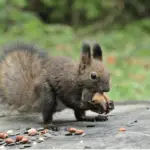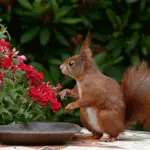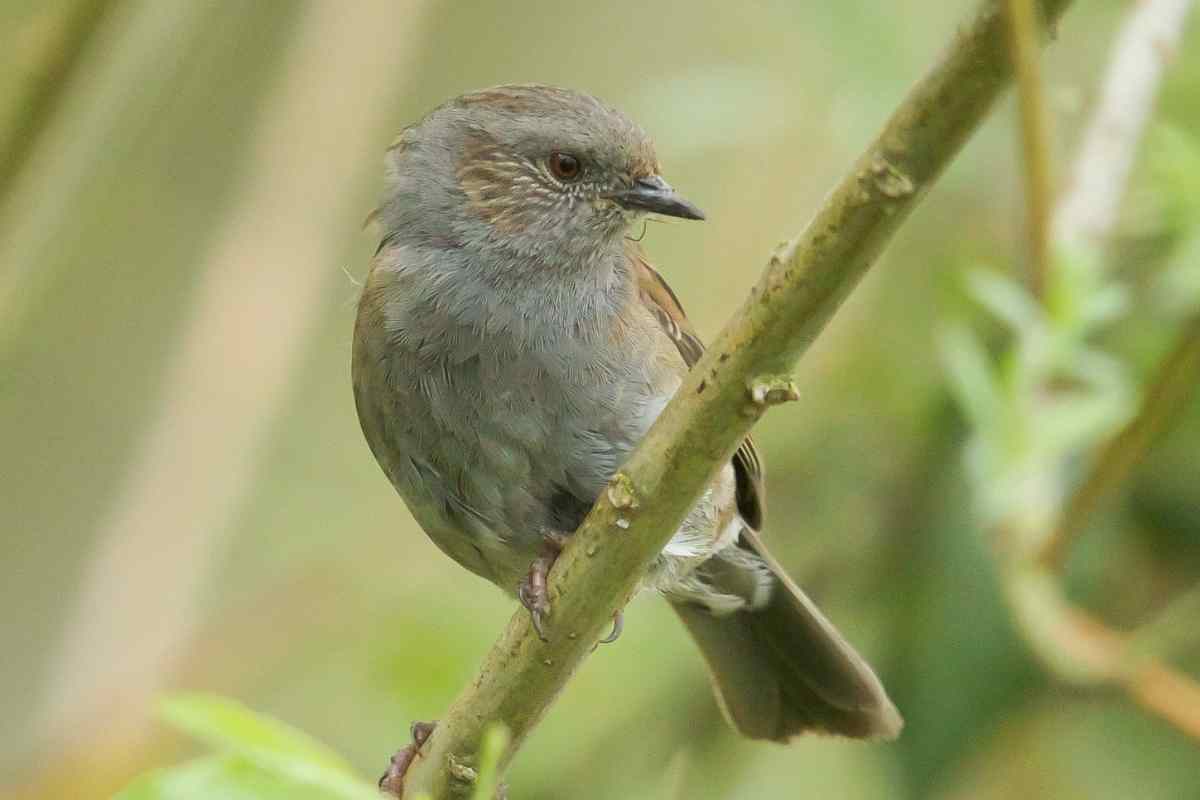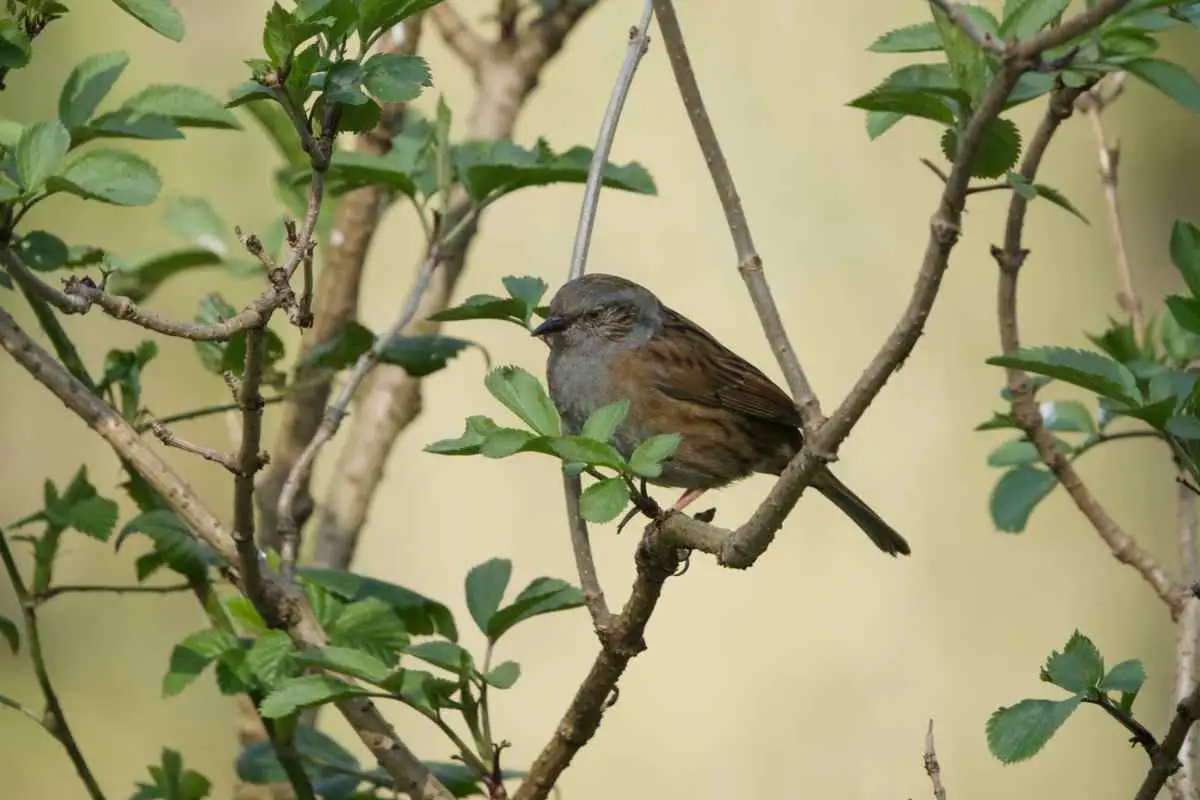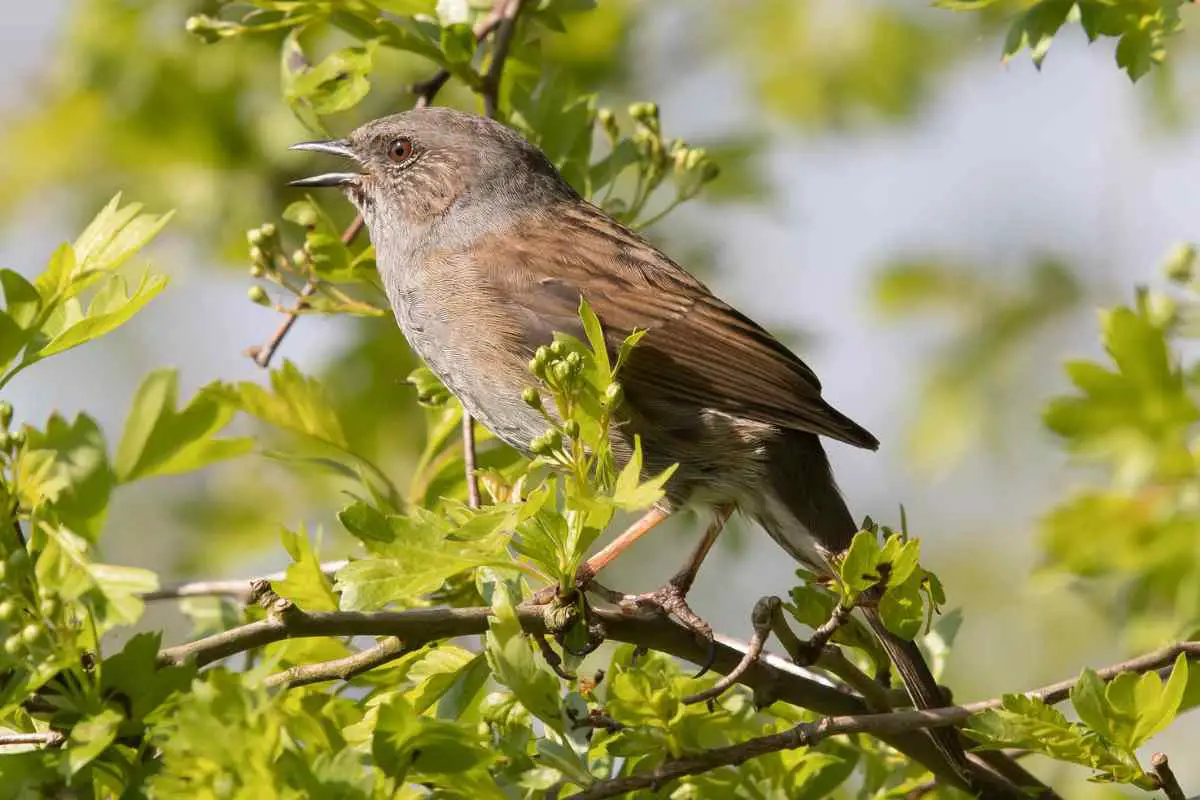Coffee grounds are a popular home remedy for keeping squirrels away from gardens and bird feeders.
While there is no scientific evidence to support this claim, many people swear by the method.
The theory is that the strong smell of coffee grounds is unpleasant to squirrels and will deter them from entering the area.
There are several ways to use coffee grounds to repel squirrels. One method is to sprinkle the grounds around the perimeter of the garden or bird feeder.
Another is to mix the grounds with water and spray the mixture in the area. Some people even add coffee grounds to their compost pile or use them as an all-natural fertilizer for their plants.
While coffee grounds may not be a foolproof method for keeping squirrels away, they are a safe and eco-friendly option that is worth trying.
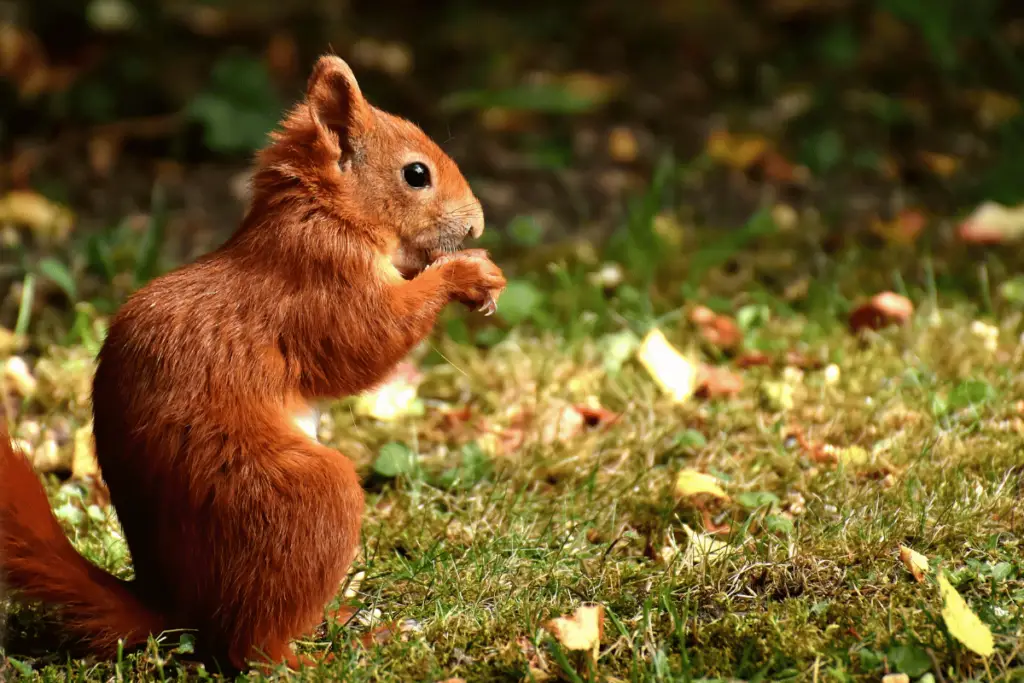
Table of Contents
What Are Coffee Grounds?
Definition
Coffee grounds are the leftover residue of brewed coffee. They are the small particles that remain after the coffee beans have been roasted, ground, and brewed.
Coffee grounds are a rich source of nutrients that can be used to fertilize soil and promote plant growth.
They contain nitrogen, phosphorus, potassium, and other minerals that are beneficial for plants.
Coffee grounds are a popular natural remedy to repel pests like squirrels, slugs, and ants. They have a strong odor that can mask the scent of plants and deter pests from approaching.
Coffee grounds are also used as a natural exfoliant in skin care products and as a deodorizer in household items like refrigerators and garbage disposals.
Coffee grounds can be obtained from coffee shops, cafes, and households that brew coffee regularly. They can be used fresh or dried and stored for later use.
It is important to note that not all coffee grounds are created equal. The quality and nutrient content of coffee grounds can vary depending on the type of coffee beans used, the brewing method, and the roasting process.
In summary, coffee grounds are the leftover residue of brewed coffee that are rich in nutrients and can be used for a variety of purposes, including as a natural pest repellent.
Squirrels and Their Behavior
Squirrels are small to medium-sized rodents that are known for their bushy tails and cute appearance.
They are agile and quick and can be found in almost any habitat, from forests to urban parks.
These animals are known for their love of nuts, but they also eat a variety of other foods, including fruits, seeds, and insects.
Habitat and Diet
Squirrels are found all over the world, with the exception of Australia and Antarctica. They are most commonly found in forests, but they can also be found in urban areas, where they are attracted to gardens and bird feeders.
Squirrels are opportunistic feeders, which means that they will eat whatever they can find. Their diet varies depending on the season and the availability of food.
In the summer, squirrels eat a lot of fruits and vegetables, such as berries, apples, and corn. In the fall, they focus on nuts, such as acorns and walnuts.
They will often bury nuts in the ground to save them for later. In the winter, when food is scarce, squirrels will eat bark, twigs, and even insects.
Behavioral Patterns
Squirrels are diurnal, which means that they are active during the day. They are also very social animals and will often live in groups.
Squirrels communicate with each other using a variety of sounds, including chirps, barks, and whistles.
They are also known for their acrobatic abilities and can jump up to 10 feet from tree to tree.
Squirrels are known for their hoarding behavior. They will often collect and store food for later use. They have a very good memory and can remember where they have buried their food.
Squirrels are also territorial animals and will defend their food and nesting sites from other squirrels.
Overall, squirrels are fascinating animals with unique behaviors and adaptations.
Understanding their habitat, diet, and behavioral patterns can help us better appreciate and coexist with these furry creatures.
Theories Behind Using Coffee Grounds as a Squirrel Repellent
The Chemical Composition of Coffee Grounds
Coffee grounds are a rich source of nitrogen, phosphorus, and potassium, which are essential nutrients for plant growth.
However, they also contain caffeine and other chemicals that may have a repellent effect on squirrels.
Caffeine is a natural pesticide that paralyzes and kills insects. In high concentrations, it can also affect the nervous system of small animals like squirrels, making them feel uneasy and uncomfortable.
Other chemicals found in coffee grounds, such as diterpenes and trigonelline, have also been shown to have insecticidal and antifungal properties.
It is possible that these chemicals may also have a repellent effect on squirrels.
The Role of Smell and Taste
Squirrels have a keen sense of smell and taste. They use these senses to locate food and avoid potential dangers.
Some people believe that the strong smell of coffee grounds may be unpleasant to squirrels and deter them from entering a certain area.
In addition, the bitter taste of caffeine may also discourage squirrels from eating plants or seeds that have been treated with coffee grounds.
However, it is important to note that squirrels have different preferences and may not be deterred by the same smells and tastes that humans find unpleasant.
The Effectiveness of Coffee Grounds on Squirrels
While there is some anecdotal evidence to suggest that coffee grounds can repel squirrels, there is currently no scientific research to support this claim.
Some studies have shown that caffeine and other chemicals found in coffee grounds can have a repellent effect on insects and other small animals, but their effectiveness on squirrels is unknown.
It is also important to note that coffee grounds should not be used as the sole method of squirrel control.
Other methods, such as physical barriers or humane traps, may be more effective in preventing squirrel damage to gardens or bird feeders.
Overall, the use of coffee grounds as a squirrel repellent remains a topic of debate.
While there is some evidence to suggest that caffeine and other chemicals found in coffee grounds may have a repellent effect on squirrels, their effectiveness as a standalone method of control is unclear.
How to Use Coffee Grounds to Keep Squirrels Away
Coffee grounds have been known to deter squirrels from invading gardens and bird feeders. Here are some effective ways to use coffee grounds to keep squirrels away.
Application Methods
- Sprinkle coffee grounds around the soil surrounding plants: The scent of the coffee will linger and create a barrier that squirrels will avoid. Limit the use of coffee grounds to a one-inch layer around plants that squirrels are targeting, or those you want to protect. You can also mix coffee grounds with water and spray the mixture around your garden or bird feeder.
- Add coffee grounds to your compost pile: Coffee grounds are a great addition to your compost pile. They add nitrogen to the soil and help to create a rich, fertile compost.
- Make a coffee ground “tea” and use it to water your plants: Soak coffee grounds in water overnight, strain the mixture, and use the resulting liquid to water your plants. The coffee ground “tea” will help to fertilize your plants and keep squirrels away.
Precautions and Risks
- Do not use too much coffee grounds: Using too much coffee grounds can be harmful to plants. Limit your use to a one-inch layer around plants that squirrels are targeting, or those you want to protect.
- Do not use coffee grounds on acid-loving plants: Coffee grounds are acidic and should not be used on acid-loving plants like azaleas, rhododendrons, and blueberries.
- Do not use coffee grounds on plants that prefer dry soil: Coffee grounds can retain moisture and can cause root rot in plants that prefer dry soil.
- Do not use coffee grounds around pets: Coffee grounds can be harmful to pets if ingested in large amounts.
In conclusion, coffee grounds can be an effective natural squirrel repellent when used properly.
By using the right application methods and taking necessary precautions, you can keep squirrels away from your garden and bird feeders without harming your plants or pets.
Alternative Methods for Squirrel Control
There are several alternative methods for squirrel control that can be used in conjunction with coffee grounds to keep squirrels away from your garden and property.
These methods can be categorized into three main groups: Natural Repellents, Physical Barriers, and Other Deterrents.
Natural Repellents
Natural repellents are a great way to keep squirrels away from your garden without harming them.
Some of the most effective natural repellents include red pepper flakes, white vinegar, peppermint oil, cinnamon, garlic, and rosemary.
These natural repellents can be used in a variety of ways, such as spraying them around the garden or planting them in the soil.
Physical Barriers
Physical barriers are another effective way to keep squirrels away from your garden and property.
Some of the most common physical barriers include chicken wire, mesh netting and fences. These barriers can be used to create a physical barrier that squirrels cannot easily pass through.
Other Deterrents
Other deterrents include using decoys, predator urine, and motion-activated sprinklers. Decoys such as fake owls or snakes can be used to scare squirrels away from your garden.
Predator urine can be purchased from hunting stores and sprayed around the garden to create the illusion of a predator in the area.
Motion-activated sprinklers can be set up around the garden to deter squirrels from entering the area.
Overall, using a combination of natural repellents, physical barriers, and other deterrents can be an effective way to keep squirrels away from your garden and property.
However, it is important to note that no method is 100% effective, and it may take some trial and error to find the best solution for your specific situation.
Conclusion
In conclusion, coffee grounds can be an effective and natural way to keep squirrels away from your garden.
The strong smell of coffee can act as a deterrent for squirrels and other pests, including ants, slugs, snails, and even cats.
However, it is important to note that coffee grounds need to be replenished frequently to maintain their effectiveness.
When using coffee grounds to repel squirrels, it is recommended to sprinkle fresh coffee grounds around the soil surrounding your plants every two weeks.
This will ensure that the scent of coffee lingers and creates a barrier that squirrels will avoid. Additionally, you can try using hot pepper spray as an additional deterrent.
It is important to keep in mind that coffee grounds may not be a good fit for every area that needs to be squirrel-proofed.
Factors such as weather conditions, the size of the garden, and the severity of the squirrel problem can all affect the effectiveness of coffee grounds as a deterrent.
Overall, using coffee grounds to keep squirrels away can be a natural and safe alternative to chemical repellents.
However, it is important to use them properly and in conjunction with other methods to ensure the best results.
- How to Build a Planter Box for Bamboo: A Step-by-Step Guide
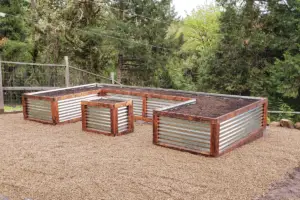
- Can Robotic Lawnmowers Handle Steep Slopes?
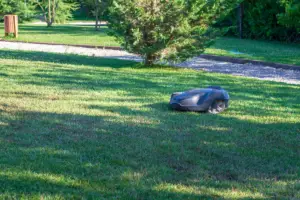
- Do You Need a Specific Lawn for a Robotic Lawnmower? Expert Advice
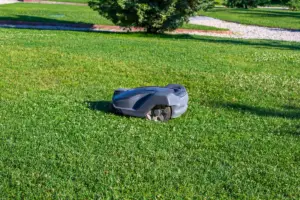
- Are Robotic Lawnmowers Safe for Pets and Children? Safety Features of Robotic Lawnmowers
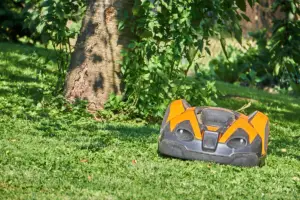
- Why Use Robotic Lawnmowers? Advantages of Using a Robotic Lawnmower
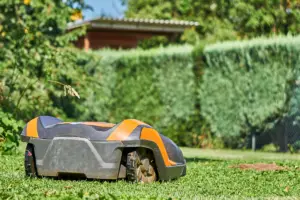
- Is the GARDENA SILENO City 300 Cordless or Corded? A Clear Answer










